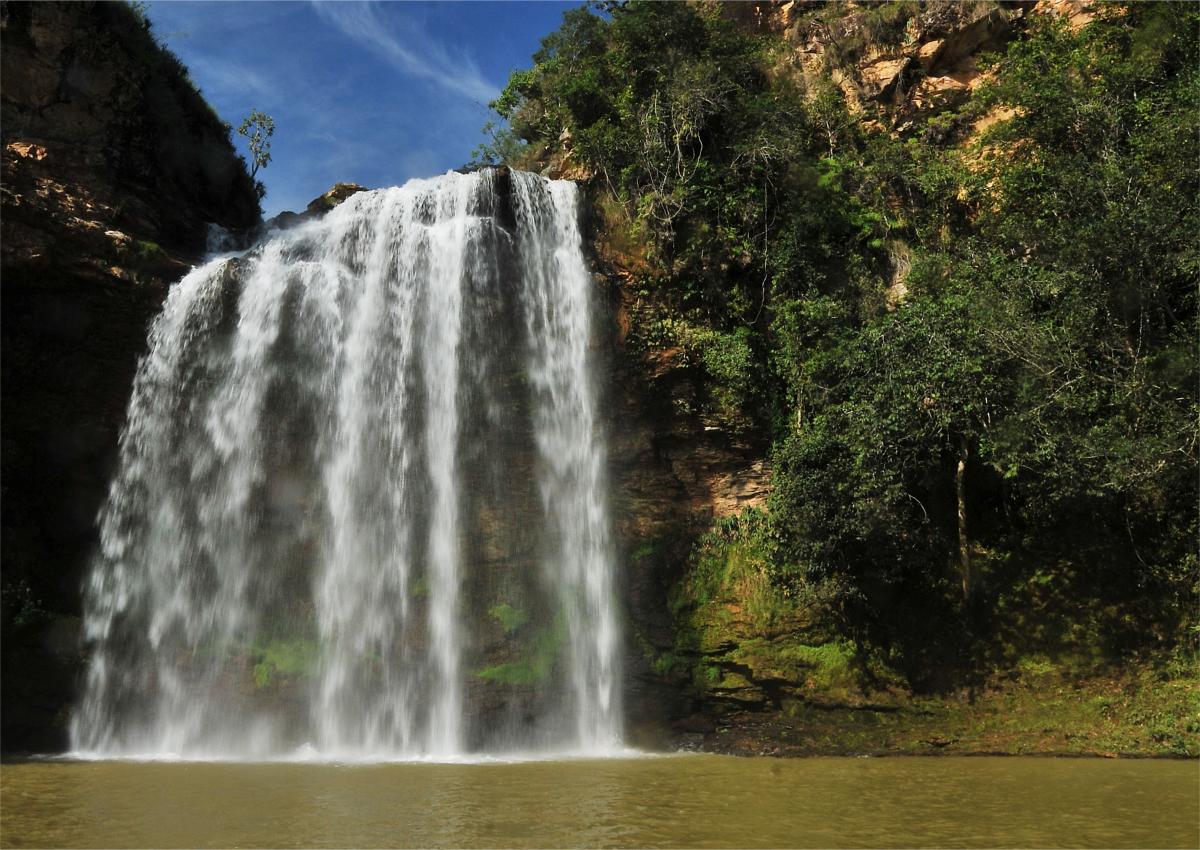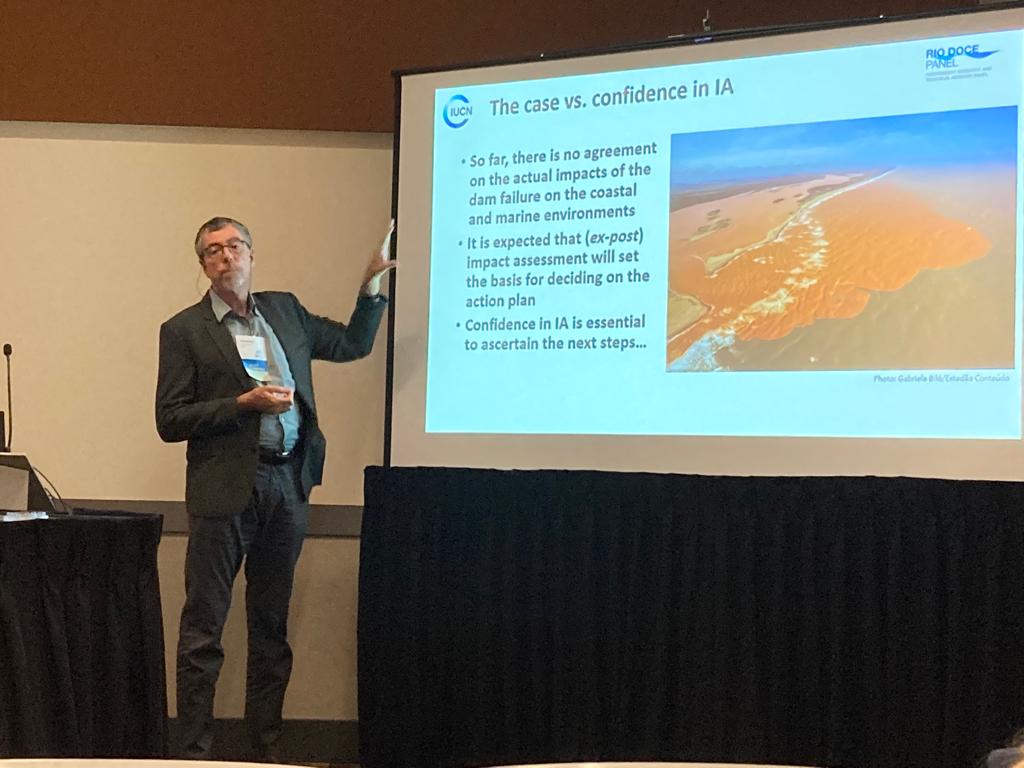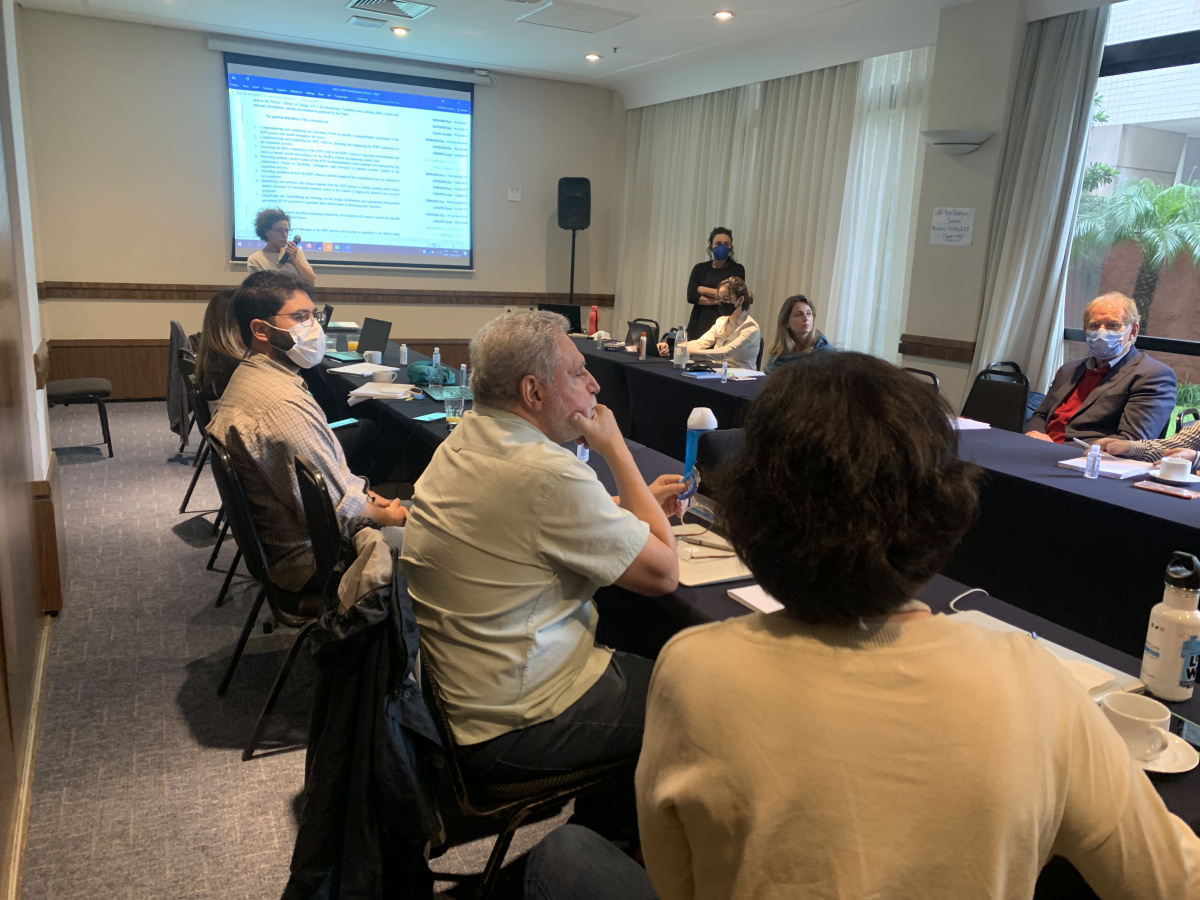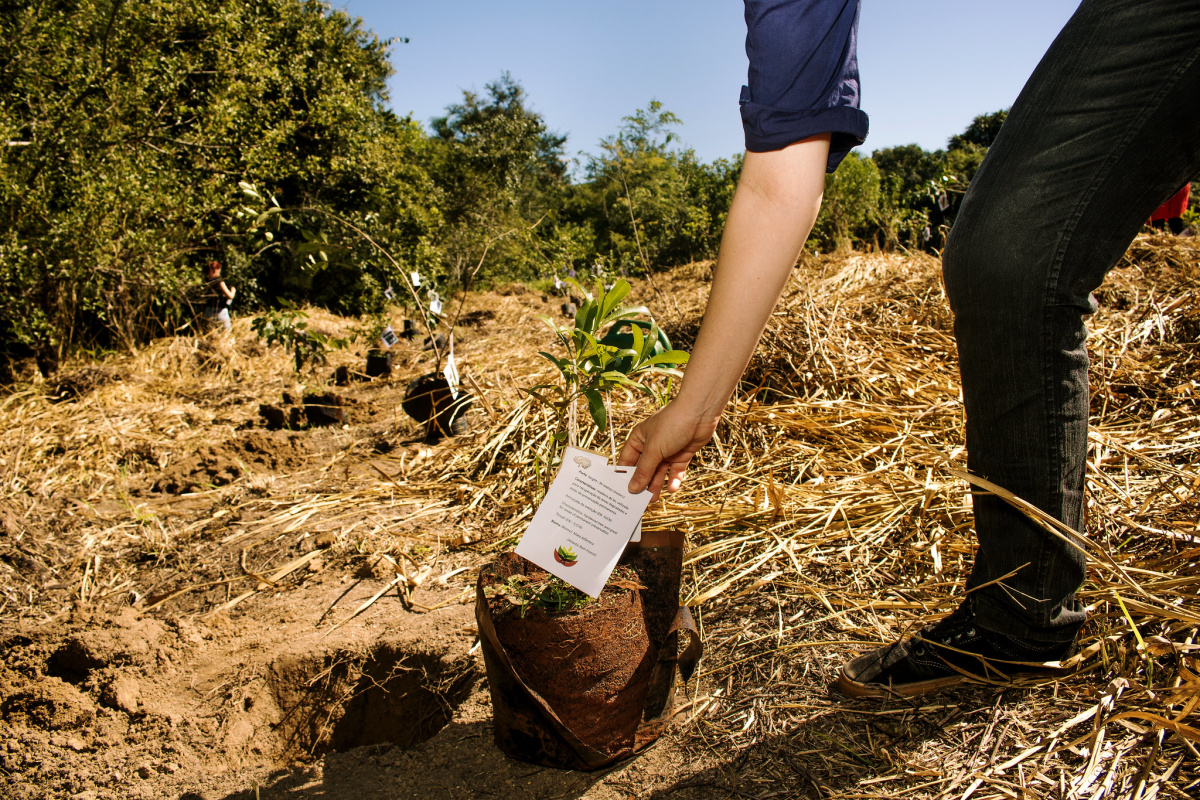New climate-smart investment scheme to promote sustainable land and water use in Brazil’s Cerrado region
Global coffee brands and environmental organisations back an innovative programme led by the Cerrado Waters Consortium.

Photo: Marcelo Andre
Patrocinio, Minas Gerais, Brazil, August 8, 2019 – An innovative, climate-smart investment scheme aimed at safeguarding the country’s central highland plains’ biodiversity and water supplies will begin this month, according to the multi-stakeholder Cerrado Waters Consortium, backed by some of the world’s leading coffee brands and conservation organisations.
Building on an IUCN-led project and initial support from Nespresso, major coffee brands Nestlé and Lavazza, and the trading company Expocaccer, have now joined forces to make a five-year commitment to support the Cerrado Water Consortium’s initiative in the region -- one of Brazil’s main coffee growing areas and a globally-recognised biodiversity hotspot.
The Consortium plans to invest in protecting the natural ecosystems found on 124 properties along the Feio River basin in the State of Minas Gerais, which is increasingly threatened by unsustainable land use, inefficient water use and climate change. The region is responsible for 12% of national coffee production.
"To promote the recovery and conservation of ecosystem services as an insurance against climate change in this important landscape is a key objective of the investment program," says Guilherme Amado, manager of Nespresso in Brazil. "At the pilot site in Patrocínio, where the entire municipality and coffee farmers depend on this unique basin, farmers will also have a clear vision of the degradation of ecosystem services on their farms, and will receive professional advice and funding to make them climate resilient.
Under the new investment programme, land owners will literally be hands-on, environmental asset managers, and their decisions to protect key ecosystem services – such as forests and streams – will directly contribute to the restoration of the Cerrado landscape,” says Giulia Carbone, Deputy Director of the IUCN Business and Biodiversity Programme.
In the first year, the four companies have pledged nearly USD 100,000 to support the Cerrado Waters Consortium. In addition, the Consortium has received a USD 400,000 grant, the largest to date, from the Critical Ecosystem Partnership Fund to implement the new scheme, called the Investment Programme for Conscious Producers. This was the greatest grant ever awarded by CEPF, which has demanding donors such as l'Agence Française de Développement, Conservation International, the European Union, the Global Environment Facility, the Government of Japan and the World Bank.
“Lavazza strongly believes that sustainability is a shared responsibility and integration between economic growth, social inclusion and environmental protection is the only paradigm that can create value. As a multi-stakeholder initiative, the Cerrado Waters Consortium has demonstrated why business needs to take a long-term approach and contribute to the broader landscape where we work”, says Mario Cerutti, Lavazza’s Chief Institutional Relations and Sustainability Officer.
The Cerrado region covers 21% of the country and 11 million hectares are in the State of Minas Gerais. Its biome is unique, given the number of species found nowhere else in the world. In addition, the region provides 40% of the country’s freshwater but 29 of the river basins are in “water conflict areas”, according to the Instituto Mineiro de Gestão das Águas (IGAM).
“Promoting the restoration and conservation of ecosystem services as an insurance against climate change is a key objective on the investment programme,” says Senior Director of Conservation International Brazil Miguel Moraes. “In Patrocinio, where the community and coffee growers share the single river basin, producers will be able to manage the water flow for the first time. The producers will also have a clear view of the degradation of ecosystem services on their properties, and receive professional advice and funding to help make these services climate resilient.”
All of these efforts are critical for restoring the landscape and ensuring that the coffee value chains are sustainable. As Peggy Poncelet, Grant Director at the Critical Ecosystem Partnership Fund says: “The goal is to achieve chemical-free restoration with native species of the Cerrado and provide coffee producers with expertise on climate-smart farming practices and water resources management to conciliate sustainable coffee production and the conservation of this critical global hotspot for biodiversity. For example, partnerships with local agro-ecological labs, such as Emater (a public sector organisation that provides rural extension), will help test new technologies to reduce the incidence of weeds and disease, and ultimately restore the landscape”.
About the Cerrado Waters Consortium:
Established in 2015, the Cerrado Waters Consortium, a legally independent organization, is a platform that gathers companies, civil society organizations and government representatives with the aim of promoting environmental development through the restoration of the landscape and maintenance of the ecosystem services of the Brazilian Cerrado. Members of the Cerrado Waters Consortium include: CerVivo, Conservação Internacional, Critical Ecosystem Partnership Fund (CEPF), Cooxupé, Expocaccer, Federação dos Cafeicultores do Cerrado, UICN, Lavazza, Nespresso and Nestlé.
For further background, visit the IUCN Consortium webpage.



